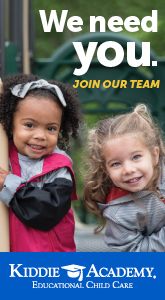November 4, 2024
Could Mindfulness Strategies Help You and Educators Like You?
Peace is present right here and now, in ourselves and in everything we do and see.
– Thich Nhat Hanh
Today’s message is contributed by Chris Kiewra, assistant professor of practice at the University of Nebraska-Lincoln in the Child, Youth, and Family Studies Department, and Dimensions board member.
Job stress and employee turnover is having significant impacts in early childhood settings, particularly programs that serve marginalized communities. High turnover can disrupt relationships with children and families, negatively affecting children’s learning and development. Holly Bowers, at the University of Nebraska-Lincoln, leads a project aimed at enhancing educator well-being to improve retention through a mindfulness-based intervention called “Cultivating Healthy Intentional Mindful Educators” (CHIME). This eight-week program, developed with early childhood educators, teaches mindfulness and compassion strategies to reduce stress and enhance emotional regulation among teachers. Research indicates that such practices benefit both educators and children, promoting better health, focus, and relational dynamics so they are also working with families to create strategies to involve children in CHIME at home.
Are you ready to engage in mindfulness and reflective practices for the health and well-being of you and young children? Check out the Exchange Hub for all kinds of social-emotional and professional growth resources, including “Five Minute Meditation For Preschoolers and Teachers” by Satomi Izumi-Taylor.
Share with the hashtag #ExchangeEveryDay
Print Friendly
Related
By Serene Stevens and Jennifer Gilken












